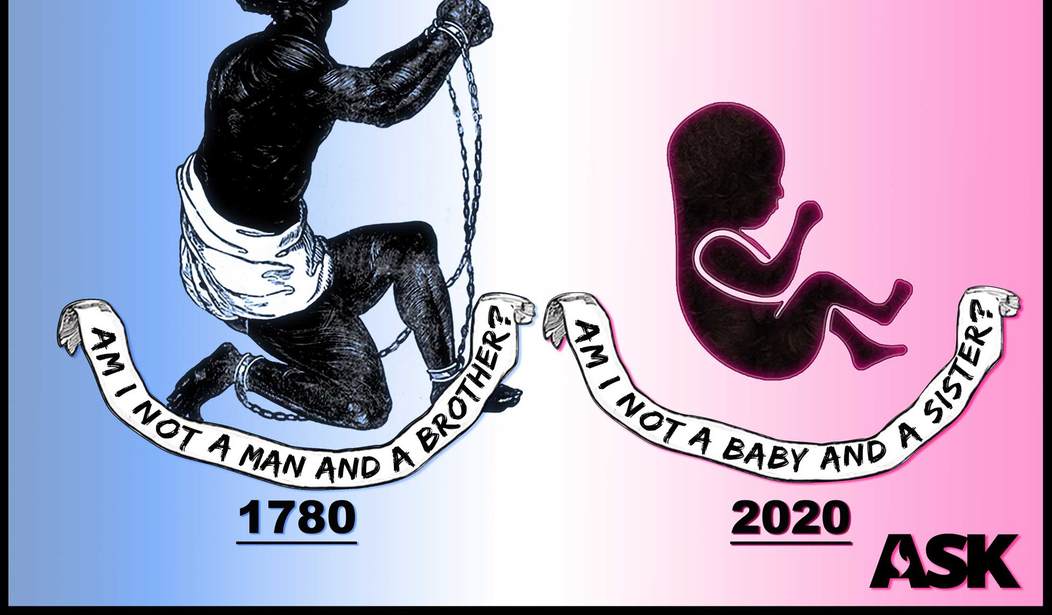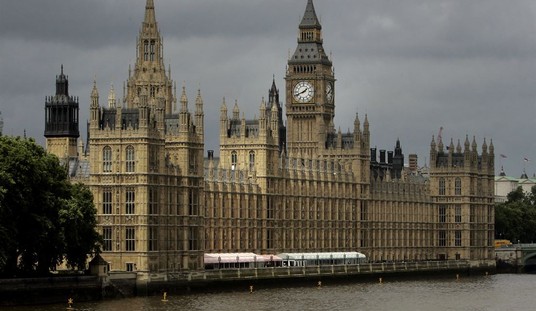In 2023, the South Carolina legislature passed, and SC Gov. Henry McMaster signed, a fetal heartbeat bill which banned abortion after the detection of a fetal heartbeat, recognized as around six weeks of gestation. The debate over the bill resulted in screeds like this one by State Rep. Todd Rutherford (D-Richland), who called the pre-born baby, "pretend life." South Carolina Democrats joined in his outrage theater by walking out of the legislative session.
WATCH:
In South Carolina a pro-life bill was passed to protect unborn babies at the detection of a heartbeat.
— Obianuju Ekeocha (@obianuju) February 19, 2021
Watch the shameful meltdown of pro-abortion politicians in reaction to the bill.
This Democrat described the unborn baby as "pretend life" and then they staged a walk-out. pic.twitter.com/naaFM1RnTK
State Rep. Melissa Oremus (R-Aiken) gave a powerful speech in support of the bill, which many deemed the action that sealed its passage.
WATCH:
WATCH: After 25 hours of debate on the Heartbeat Bill, Rep. @MelissaOremus of the @SCFreedomCaucus left every Democrat in the South Carolina House of Reps in a stunned silence after giving an impassioned speech for life, talking about how she has a baby at 16 and resisted… pic.twitter.com/vvrQPkXmYr
— Greg Price (@greg_price11) May 18, 2023
WATCH: After 25 hours of debate on the Heartbeat Bill, Rep. @MelissaOremus of the @SCFreedomCaucus left every Democrat in the South Carolina House of Reps in a stunned silence after giving an impassioned speech for life, talking about how she has [sic] a baby at 16 and resisted pressure to get an abortion.
Watch this whole thing.
But like the Florida heartbeat law, the South Carolina one underwent challenges from PPFA (Planned Parenthood Federation of America) and other pro-abortion groups, and went before the South Carolina Supreme Court (SCSC), not once, but twice. On Wednesday, SCSC unanimously ruled to uphold the fetal heartbeat law.
The South Carolina Supreme Court today unanimously upheld the Fetal Heartbeat and Protection Act that protects the lives of unborn children when a heartbeat is detected, usually by six weeks gestational age.
The 27-page opinion upheld that of 5th Circuit Court Judge Daniel Coble who ruled in May of 2024 in favor of the Heartbeat Act noting that it was the will of the General Assembly to establish the fetal heartbeat at six weeks of gestation. With limited exceptions, including protections for the mother’s life and health, the Fetal Heartbeat Act protects unborn children when the fetal heartbeat can be detected.
“This is a win, not only for the heartbeats of the unborn, but for all the members of our human family who may become or who are vulnerable in our society,” said Lisa Van Riper, President of South Carolina Citizens for Life (SCCL).
“It is also a win for Constitutional law in South Carolina because the Court has rightly given deference to the General Assembly’s desire to protect human life,” she said.
The abortion advocates, via the Associated Press, had a more measured view of the ruling.
The South Carolina Supreme Court ruled Wednesday the state can keep banning abortions around six weeks after conception by agreeing with the earliest interpretation offered of when a heartbeat starts.
The justices unanimously ruled that while the medical language in the 2023 law was vague, supporters and opponents of the law all seemed to think it banned abortions after six weeks until Planned Parenthood lost its challenge to the entire law two years ago.
The law says abortions cannot be performed after an ultrasound can detect “cardiac activity, or the steady and repetitive rhythmic contraction of the fetal heart, within the gestational sac.”
The state of South Carolina has been a hot spot for pro-life advocacy of late. Kerr v. Planned Parenthood, which involves the state seeking to block the use of Medicaid to fund abortions at PPFA centers, is currently being weighed before the United States Supreme Court, and the current climate indicates SCOTUS may well rule in South Carolina's favor. Which is why abortion abolitionists see this as a perfect opportunity to force the hand of the Republican State House Speaker in order to move the state from abortion limitation to abortion eradication.
Breaking: The South Carolina Supreme Court has upheld the Heartbeat Abortion Prevention Act!
— Kristan Hawkins (@KristanHawkins) May 14, 2025
Now; @schousespeaker has no excuse but to allow the Rep. McCravy’s “Human Life Protection Act” to pass and end all abortions in the state!
In January, State Rep. John McCravy (R-Greenwood) introduced the "Human Life Protection Act." Like many of the fetal personhood bills being pushed through legislatures across the country, it would ban abortions of any kind (chemical or surgical) from being performed across the state. Unlike some of these abolition bills, McCrary's legislation gives exceptions for rape, incest, fetal anomalies or danger to the mother's life. It also does not seek to criminalize the woman seeking to obtain an abortion, only the medical personnel who perform it.
The proposal, backed by dozens of republicans, does not restrict in-vitro fertilization or contraception and does not criminalize people for getting an abortion. It does, however, include criminal penalites [sic] for doctors who perform illegal abortions.
This bill is far less restrictive than many of the abolition bills being floated, but has only received one hearing and appears to be stalled in committee. Its introduction has also produced fallout. McCravy is the leader and founder of the South Carolina Family Caucus, whose website lists 58 lawmakers as members. However, McCravy's alliance with the Hawkins Students for Life group and his advocacy for abortion abolition have divided the caucus.
Last week, 29 members of the caucus wrote a letter to publicly resign from the group.
Members of the group, which had 55 current lawmakers listed on its website as members, objected to tactics by outside and third-party groups coming to churches to call for further abortion bans in the state.
“These groups employ inflammatory tactics and seek confrontation,” the letter to McCravy said. “Their harassment of churchgoers — on Palm Sunday, no less — crosses a moral line. Your silence as the moderator of this caucus, along with your continued support and engagement with the groups that employ those tactics is unacceptable.”
The resignation letter, which was signed by state Reps. Richie Yow, Davey Hiott, Patrick Haddon, Shannon Erickson, Bobby Cox, Val Guest, Melissa Oremus, Cal Forrest, Cody Mitchell, among others, also says the caucus has punished dissent.
“Our resignation is not a withdrawal from the fight for faith and family — it is a stand for the principles that should define that fight,” the letter said. “We will continue to advocate for pro-family, pro-life and pro-faith policies in the State House.”
Note that one of the members who withdrew from the caucus was Rep. Melissa Oremus, who gave the powerful speech above in support of the fetal heartbeat bill's passage. This type of action continues to reflect the divide in the local and regional pro-life coalitions, where traditional, stalwart pro-lifers are butting heads and at cross purposes with zero-sum game abolitionist groups like the Foundation to Abolish Abortion and Students for Life. Abolitionists are becoming the new face of pro-life, yet what they see as an opportunity to push the envelope, traditional pro-lifers see as a distraction and a diminishment of the decades of groundwork they have laid and the gains they have accomplished. The traditionalists' focus on state-by-state gains that build a culture of life and transform hearts and minds is at odds with the abolitionists' goal of restrictive state-by-state legislation. Traditionalists see severe backlash as a result of the abolitionists' behavior, as well as an erosion of the work that has been done on behalf of the unborn.














Join the conversation as a VIP Member